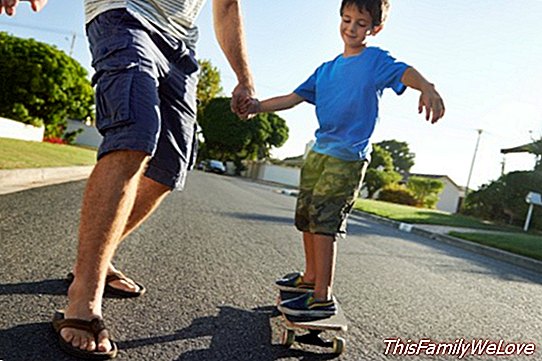The self-esteem of children and adolescents: a thought or a feeling?
The self esteem can be defined as the esteem that each one has to himself, understood that way we can understand that self-esteem is a powerful resource for children and young people. Self-esteem, that is, loving oneself is the key that will open many doors for us, which we sometimes close ourselves. Self-esteem is a guarantee of happiness, well-being and personal success. And yet, in many cases, self-esteem is relegated to a second level in the education of children and adolescents.
The construction of self-esteem
Self-esteem is the esteem towards oneself. Self-esteem is not something innate, that is, nobody is born with high or low self-esteem. Self-esteem is built as the person has social experiences, that is, self-esteem is formed through others. In this construction of self-esteem the following elements intervene: how we perceive that others see us, how we interpret that image that others have of us and, above all, how we feel with the image that others have of us.
This construction of the self esteem It takes place during the first years of life, childhood and adolescence are crucial stages. The experiences lived in these stages, are going to suppose the bases on which the self-esteem is sustained.
Self-esteem as a thought and as a feeling.
The self-esteem of each one is based on those first experiences and has two essential components: thought and feeling.
1. Thought It is the idea that each person has about himself. It is about whether the person interprets himself worthy of esteem or not.
2. The feeling. It is independent of the interpretation, it is how the person feels with himself. On many occasions the person is interpreted as worthy of esteem, but does not feel that way.
The self-esteem of children and adolescents

Childhood and adolescence are key stages for the formation of self-esteem. They are also stages in which one's own estimation will fluctuate a lot, since they are stages of change and identity search.
Self-esteem in childhood and adolescence will be determined by others. That is why it is very important to pay attention to the interpretations that they make of the experiences they are living and, above all, how they feel about these interpretations.
The role of the family in the self-esteem of children and adolescents
Families have an important role to feed the self-esteem of children and adolescents. It is clear that all parents want their sons and daughters to have a good self-esteem, but sometimes we can be doing unconscious things that affect the self-esteem of our children.
How can we help our children improve their self-esteem?
1. Praise your achievements. Too often we do not pay attention to what they do well, to their achievements. It is important to praise their achievements to improve their self-esteem, but they must be credible praise and we should not be praised. The children are very smart and can think that we do it to make them feel better.
2. Let him overcome himself. Many times we do things for them and we do not let them do certain things. It is very important to let them do it and get over it.
3. It is also important for them to receive praise from society, from other persons. Allows them to deal with other things, minor children, community activities, etc.
4. Believe in them, in their abilities and abilities and allow them to believe in themselves. The complexes are the enemies of self-esteem.
5. Help them find their talent, what gives them especially good and what they can be proud of. Everyone has talents, some will be more visible than others, from sports, art, dealing with others, etc.
Celia Rodríguez Ruiz. Clinical health psychologist. Specialist in pedagogy and child and youth psychology. Director of Educa and Learn. Author of the collection Stimulate Reading and Writing Processes.




